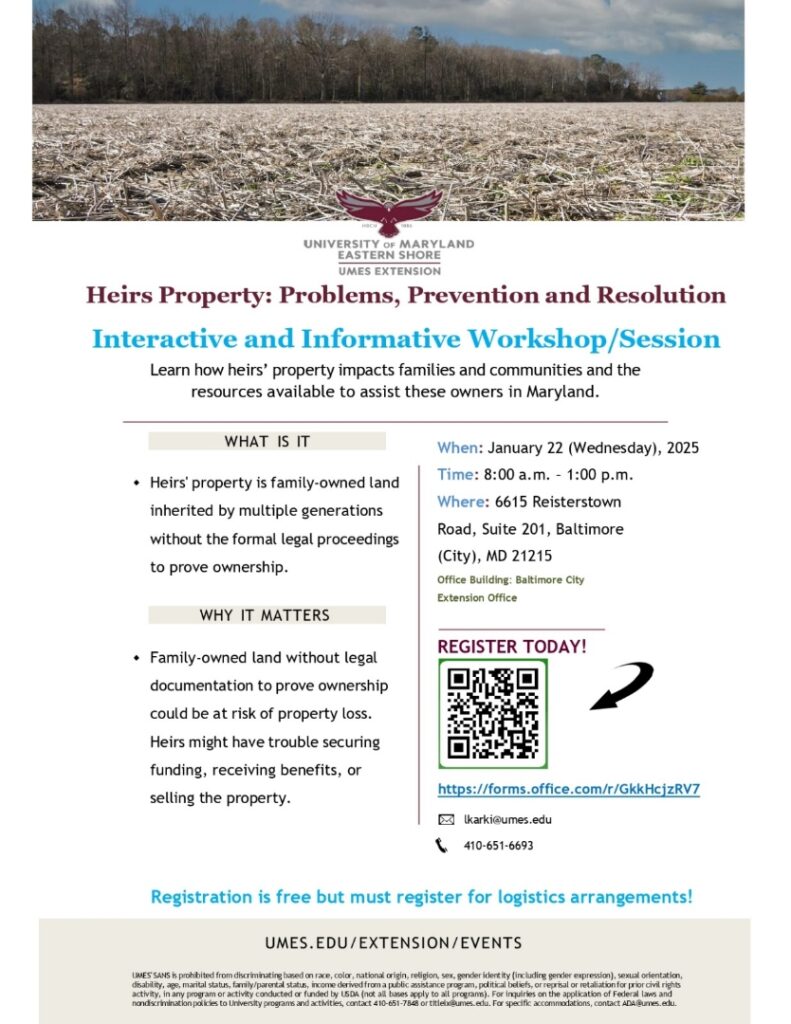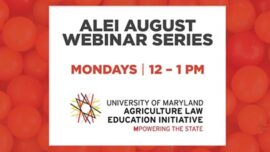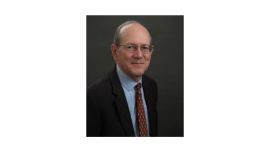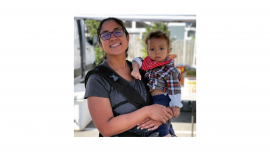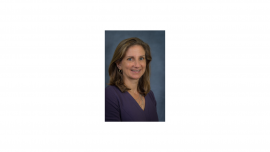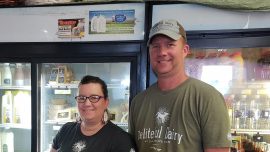June 2016 Update
2016 Maryland Good Agricultural Practice Trainings
The Agriculture Law Education Initiative (ALEI) offered one-day workshops across Maryland for small and large-scale producers who want to understand current food safety standards or are considering Good Agricultural Practice (GAP) certification. The training provided assistance in writing and implementing a GAP program for both wholesale growers and direct marketers.
Show More ALEI joined the Maryland Department of Agriculture (MDA) and the University of Maryland Extension (UME) in conducting the series of regional food safety training workshops for fruit and vegetable producers this spring. In addition to the GAP certification, Ashley Ellixson and Sarah Everhart, ALEI legal specialists, informed growers and direct marketers about the Food Safety Modernization Act (FSMA) and food-borne illness criminal and civil liability. In 2011, the Centers for Disease Control and Prevention (CDC) estimated 48 million people (1 in 6 Americans) get sick each year from food-borne diseases. Approximately 128,000 are hospitalized and 3,000 die from complications. Foodborne illness is caused by ingesting food contaminated with disease-causing microbes, pathogens, poisonous chemicals, or other harmful substances. When an individual becomes sick or dies from foodborne illness, the individual or family often pursue legal action to compensate for their losses and related damages. Because of these staggering numbers and legal liability, FSMA was enacted in 2011 and only recently have the seven foundational rules begun to be finalized. The two main rules discussed during training were the Preventive Controls Rule and the Produce Safety Rule. These rules were finalized late in 2015; however, depending on where growers fall within the requirements due to farm or processor definitions, deadlines for compliance can be a year to a few years out from the finalized rule. Fortunately, the Maryland GAP certification program aligns with these FSMA rules—growers who are already GAP-certified will be ahead of the FSMA rule deadlines. However, there is more training ahead to be in compliance with FSMA. To date, Preventive Controls Rule 3-day training is set for June 15-17. To find out more information on this training, please contact umaglaw@umd.edu. Trainings for the Produce Safety rule are tentatively set for this fall. Visit the resource section of ALEI’s website for more information. ALEI Team Presents at ‘Annie’s Project Suppers’ Across the State Representatives from the Agriculture Law Education Initiative (ALEI) presented at Annie’s Projects suppers in many regions across the State on various topics. Show More Annie’s Project is a national program offered in 33 states designed to empower women in agriculture—teaching participants to develop networks and other skills key to creating successful business partnerships. Through the courses, women in agriculture find answers, strength, and friendship, and grow in confidence, business skills, and community prestige. This year the Maryland Annie’s Project courses were held at night as “supper courses” which allowed participants to share a meal, network, and learn skills to help them and their farms thrive. “I learned about subjects such as laws, regulations, permits, and available resources to help me know how to be successful in my family business,” said Bianca Soto-Gomez, an Annie’s Project supper participant who attended two ALEI presentations. Ashley Ellixson, Extension legal specialist for ALEI, presented to Upper and Mid-Shore Annie’s Project supper groups on landowner liability and insurance. Ellixson explained the multiple types of landowner liability which farm operators could be subject to in Maryland and how insurance coverage can protect operators from liability related loss. Paul Goeringer, the founding Extension legal specialist of ALEI, presented to Annie’s Project supper participants in Southern Maryland about legal risk management strategies and using business ownership entities such as limited liability corporations in a farming operation. The desire to limit exposure to legal risk is something farmers in every size and type of Maryland operation have in common. Goeringer provided some simple strategies for limiting legal risk, including but not limited to utilizing business ownership entities as a way to separate personal and business assets. Both Goeringer and Sarah Everhart, legal specialist, presented to the Mid-Shore Annie’s Project supper in Wye Mills, Maryland. Goeringer presented on agricultural leasing tips and techniques, showing attendees the different forms of agriculture leases available and the appropriate situations in which to use them. Goeringer encouraged participants to get their lease in writing and distributed the Maryland Agricultural Leasing guide as a resource. The guide is available for download through the ALEI website. Everhart spoke about property ownership and easements and demonstrated how to navigate Maryland’s online land records website (this presentation is also available in a video on the ALEI website). Everhart explained to the attendees the importance of the structure of their property ownership and how events like divorce can change how the property is owned. She emphasized the importance of knowing the location of areas under easement and avoiding actions such as planting crops or building outbuildings within easement areas. Everhart also presented to the Lower Shore Annie’s Project Supper group on property ownership and limiting legal risk on the farm.
